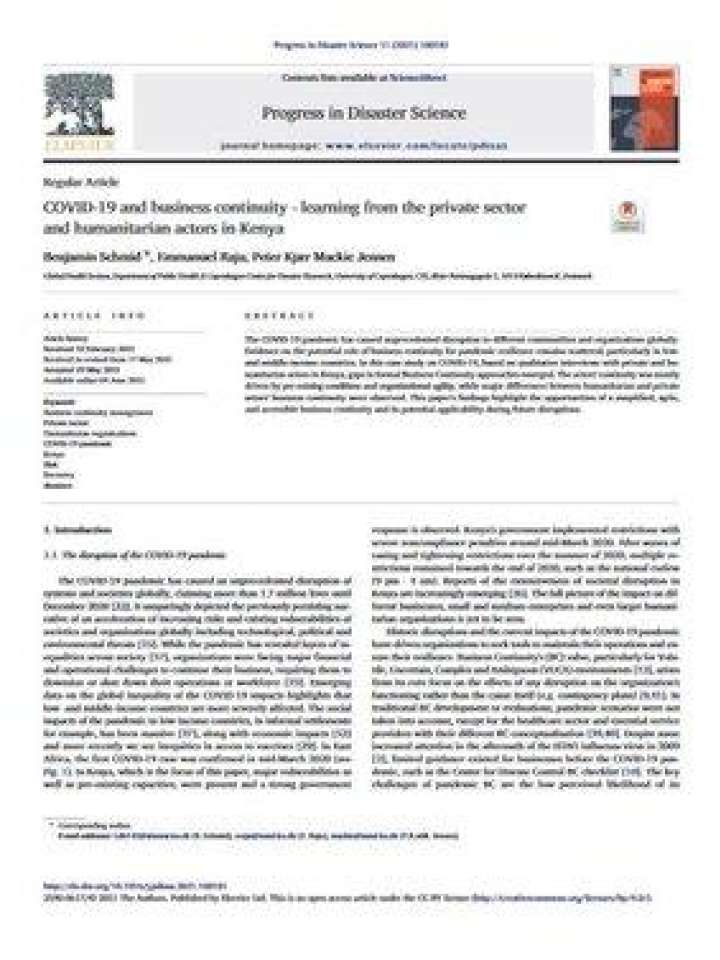COVID-19 and business continuity - learning from the private sector and humanitarian actors in Kenya
The COVID-19 pandemic has caused unprecedented disruption to different communities and organizations globally. Evidence on the potential role of business continuity for pandemic resilience remains scattered, particularly in low- and middle-income countries. In this case study on COVID-19, based on qualitative interviews with private and humanitarian actors in Kenya, gaps in formal Business Continuity approaches emerged. The actors' continuity was mostly driven by pre-existing conditions and organizational agility, while major differences between humanitarian and private actors' business continuity were observed. This paper's findings highlight the opportunities of a simplified, agile, and accessible business continuity and its potential applicability during future disruptions.
This study reiterated the role that Business Continuity Management (BCM) can play for pandemic continuity . Yet, major gaps in traditional BCM approaches weakened its contribution. These were a lack of considering business model vulnerability, the complicatedness and intensity of accurate disruption assessments. With formal BCMS lacking initially or failing, pandemic continuity during COVID-19 was largely driven by pre-existing conditions (systemic and internal) and organizational agility. Both these gaps and drivers point towards the need for a more agile and simple business continuity approach, instead of attempting to fill holes in an already convoluted traditional BCM.
Explore further
